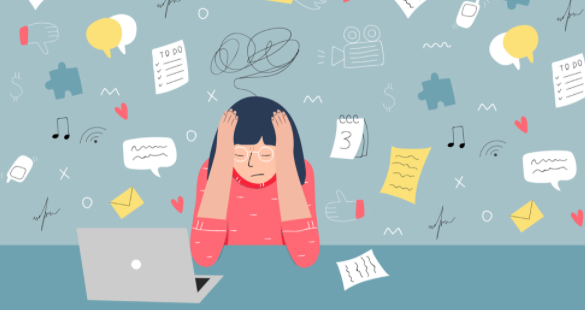How to cope with academic burnout

What is academic burnout?
Academic burnout refers to the feeling of exhaustion, lack of motivation, reduced academic ability, and frustration in school. These feelings are usually caused by negative emotional, mental, and physical reactions to prolonged study. Someone with academic burnout feels exhausted, irritable, less inspired, and has low levels of creativity.
Academic burnout may be caused by a long period of schooling, studying the same thing over and over, and working on one task for a long time. Academic burnout is a condition that can be managed by making several amends like a change of behavior.
This article explains what academic burnout is, what signs to look out for, how to prevent it, and how it can be treated.
Signs of academic burnout
Academic burnout is manifested in various ways ranging from tiredness, depression, and headache. The following are the most common signs of academic burnout:
1. Academic burnout causes exhaustion in school which leads to fatigue, stress, and insomnia.
2. Someone with academic burnout lacks the motivation to attend classes as a result of getting bored by lectures.
3. Frustration which makes one irritable, a situation manifested by constantly shouting at others when they offend you.
4. Creativity level goes down and one lacks the inspiration to perform academic tasks and to tackle problems.
5. One becomes less confident in his/her abilities to get tasks done including posting good grades in exams.
6. A person experiencing academic burnout lacks concentration in class, group discussions, and when performing tasks.
7. Exhaustion from academic burnout causes headaches and pain in other body parts.
How to prevent academic burnout
The best way to handle academic burnout is to prevent it before it happens as prevention is better than cure. This can be done by adopting certain habits and lifestyles as outlined below:
a) Strike a work-life balance
It is important to strike a balance between your academic work and social life. Create time outside school to engage in other social activities ranging from hanging out with friends, going on nature walks, and other fun activities. Too much of something can be harmful and academics is not exceptional. You need to have a life outside your academics to unwind and recharge.
b) Physical exercise
Exercising regularly will distract you from the stress of school and school work. Take time outside the school schedule to exercise as it helps your mind relax and get distracted from academic pressures. Physical exercise helps your body overcome the physical effects of academic burnout including pains.
c) Nurture relationships with teachers and schoolmates
Bad relationships between your teachers and colleagues can make you less motivated to go to school. The thought of attending classes makes you anxious which results in academic burnout. It is therefore important to make good relationships with your colleagues and teachers to avoid the toxicity associated with bad relationships.
d) Set goals
Academic burnout may be caused by the thought of not achieving academic goals like achieving certain grades. You should set realistic goals and set reasonable timelines to achieve them. This will prevent the stress associated with unachieved goals.
e) Manage your time
Work towards achieving your goal within set timelines and adhere to deadlines. Avoid postponing tasks to prevent rush hours which causes pressure and can result in academic burnout.
How to recover from academic burnout
The road to recovery from academic burnout can be challenging but it is achievable by following some necessary steps outlined below:
i) Seek help from your parents, teachers, fellow students, and counselors. These people with provide a support system that will be necessary for your recovery.
ii) If you experience symptoms that you suspect may be for academic burnout, do not ignore them. Immediately seek help before the situation gets out of hand.
iii) Create self-time when you take a step back, reflect on your current habits, and make new resolutions going forward.
iv) Make changes in your habits that may result in academic burnout. Make amends such as avoiding procrastination, nurturing your relationships with teachers, and other necessary changes.
Academic burnout is a real condition that can be treated. The best way to manage it is prevention, but it is also curable. Be keen on your habits and any symptoms and work on them to manage the situation before it gets out of hand.
